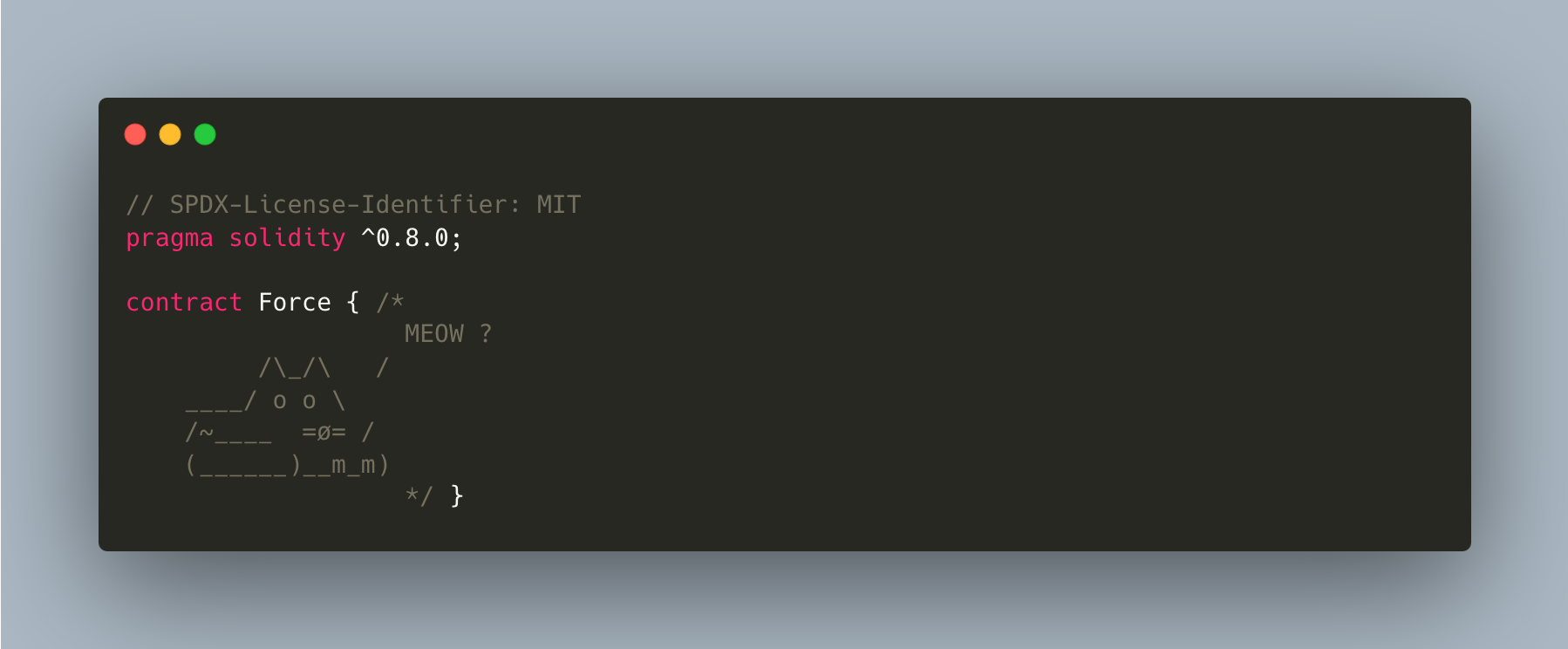Ethernaut: Force

My take on CTFs
CTFs constitute a crucial part in the process of becoming a successful security researcher as they require from you an eye for details, a good understanding of solidity and great technical skills to perform the attack and capture the flag. The most talented security researchers are great at CTFs, at solving them of course and sometimes at designing them. CTFs will not turn you into a great web3 security researcher over night, but it will surely arm you with good enough technical skills to be able to write decent coded PoCs to have your finding validated and maybe get selected for report.
What is Ethernaut?
Ethernaut is a CTF(Capture The Flag) developed by the openzeppelin team that you most propbably already heard of. If you haven't, consider taking a look at this roadmap https://www.0xjarix.com/if-i-had-to-start-again/
This CTF gathers 31 challenges for the moment, this number keeps increasing so check their website every now and then: https://ethernaut.openzeppelin.com/
Maybe you'll design your challenge one day and send it to the openzeppelin team.
Also why you here?
Of all the kinds of articles I publish, CTF writeups are those I wish you read the least. I am a big advocate of giving everything the time it needs, if you cannot solve a challenge that you know for a contains an intentional bug in such a small codebase, do not expect to do really well in the contests. There are 2 reasons why someone can fail at solving a challenge, and when I say 'fail' I mean giving up and looking at the writeups, knowing damn well these CTFs are not time-bounded. So if you failed you either:
- aren't ready for this challenge yet and that is most probably due to the fact that you skipped some steps in the roadmap
- are lazy, you read the challenge, read the codebase, maybe not enough times, you had some assumptions maybe, you might have identified some entrypoints or some conditions to bypass or break, but you did not give it enough time, you did not allow yourself to succeed and that's a shame
Force
Some contracts will simply not take your money ¯\_(ツ)_/¯
The goal of this level is to make the balance of the contract greater than zero.
Things that might help:
- Fallback methods
- Sometimes the best way to attack a contract is with another contract.
- See the "?" page above, section "Beyond the console"

Goal
address(force).balance > 0
Reasoning
- We will have to create a malicious contract
- A smart contract can receive ETH via 2 ways:
- call(), send() or transfer() methods to a payable fallback or function
- There is one other way that can be used when there are no payable functions or fallbacks, in fact the contract can even be empty like Force, it's through the selfdestruct() method executed from the smart contract we wish to send address(this).balance from, it takes for argument the address we want to send the entire balance to. selfdestruct() used to destroy the bytecode of the contract before the Dencun Upgrade now it just sends all the ETH. selfdestruct() main purpose is to limit the damage of an exploit and save as much funds as possible, it can also be used for migrations


selfdestruct() was named suicide() prior to solidity v0. 5.0💀

